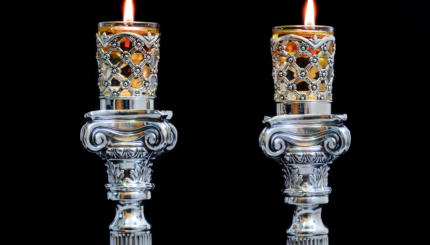Let’s make a new Jewish holiday.
Wait…what?
Let’s make a new Jewish holiday.
When I opened a recent daily e-mail from The Jewish Daily Forward, that’s what author J.J. Goldberg invited me to do.
Reading the headline, “Why We Should Honor Slain Civil Rights Workers With Jewish Holiday,” my instinct was to feel skeptical. We’ve already got the High Holidays, three festivals, Chanukah, Purim, Tu Bish’vat, days devoted to the state of Israel and the Holocaust, minor fast days, and 52 Shabbatot every year. We have the Omer count, the month of Elul, and the 9 days leading up to Tisha B’av – periods of time that, while not quite holidays, are additional times of year already marked with meaning.
We need another holiday now?
The headline startled me a little and confused me even more. But then I did what I probably should have done right away. I read the article. It turns out that Goldberg might just be onto something.
I won’t spell out all of the specific points of the article, but I will hone in on one portion, where Goldberg describes a large group of modern-day Jews – those who connect to Judaism largely because they believe that it relates issues of social justice. Furthermore, he explains, these people are often not connecting with Jewish institutions – despite the fact that many of them feel a passionate connection to their Jewish identities.
He asks a vital question about this sub-section of the Jewish people. “How can the Jewish community approach them, when its agendas, institutions and even calendar so little resemble their Judaism?”
Many Jewish texts, including our most holy, contain ideas that many in this modern-day cohort would love. Environmental ethics can be found all over the Torah. Anti-war activists need look no farther than the book of Isaiah’s cry to beat our swords into ploughshares. Texts in the Mishnah can be linked to Transgender equality today.
But there’s a problem with this. The aforementioned sub-section of Jews likely isn’t just picking up the book of Isaiah or a tractate of Mishnah on a regular basis. There needs to be an entry point. An occasion where the Jewish community collectively trumpets from its synagogues and community centers that this tradition exists. That social justice has long been a part of our tradition, and, God-willing, will still be for centuries to come.
We cannot and should not conclude that social justice and Judaism are the same. They are not. In addition to the above examples, there are real elements of the Jewish tradition that challenge, or even directly contradict, many liberal pre-dispositions. Sometimes those of us who are liberal overlook that vital truth, and to do so is a mistake.
But, if done thoughtfully, a Jewish holiday recognizing our historic connection to issues of social justice could be a vital tool as we look for ways to engage this group of Jews. It could be the perfect entry point for those who care about Social Justice and their Jewish identity, but have not yet learned how to blend those two passions into one.
So today, 16th of Tammuz (July 14th), I’m taking JJ Goldberg’s advice, and celebrating those links that exist between Jewish tradition and values of social justice. I’ll be balancing a look back at the past with a gaze into the future. I’ll take some time to reflect on the murders of three civil rights workers in my very own state of Mississippi, and, more positively, on the incredible work that was done in the aftermath of their deaths. As I look forward, I’ll be thinking about steps that I can take, as a Jew and as a human being, to minimize the possibility of similar crimes from being committed today or in the future.
I invite you to join me.
Like this post? Join the conversation through MyJewishLearning’s weekly blogs newsletter.
Mishnah
Pronounced: MISH-nuh, Origin: Hebrew, code of Jewish law compiled in the first centuries of the Common Era. Together with the Gemara, it makes up the Talmud.
Tammuz
Pronounced: tah-MOOZ (oo as in boot), Origin: Hebrew, Jewish month that usually coincides with June or July.



